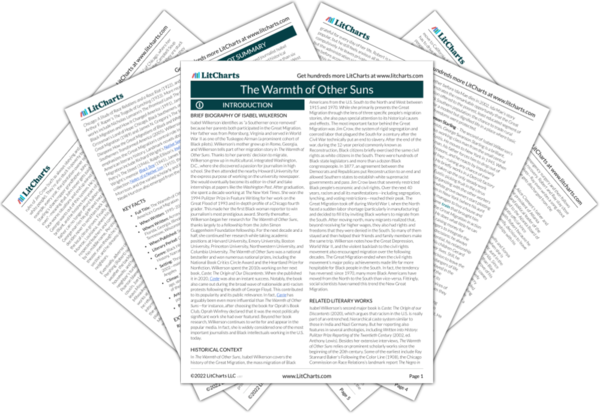Even though Robert once proudly told Wilkerson that he “wouldn’t have any regrets” if he died tomorrow, he now admits that his life often fell short of his high expectations. (Still, even this admission is progress: it shows that he’s accepting his fate.) He never doubts that going to California was worth it, but he does wonder if he overreacted by completely severing his and his family’s connections to Monroe. He did so above all because his early run-ins with racism affected him so deeply. This attests to a basic but often underappreciated truth about the Great Migration: perhaps even more than poverty and violence, migrants were fleeing a system that asked them to view themselves as subhuman.


